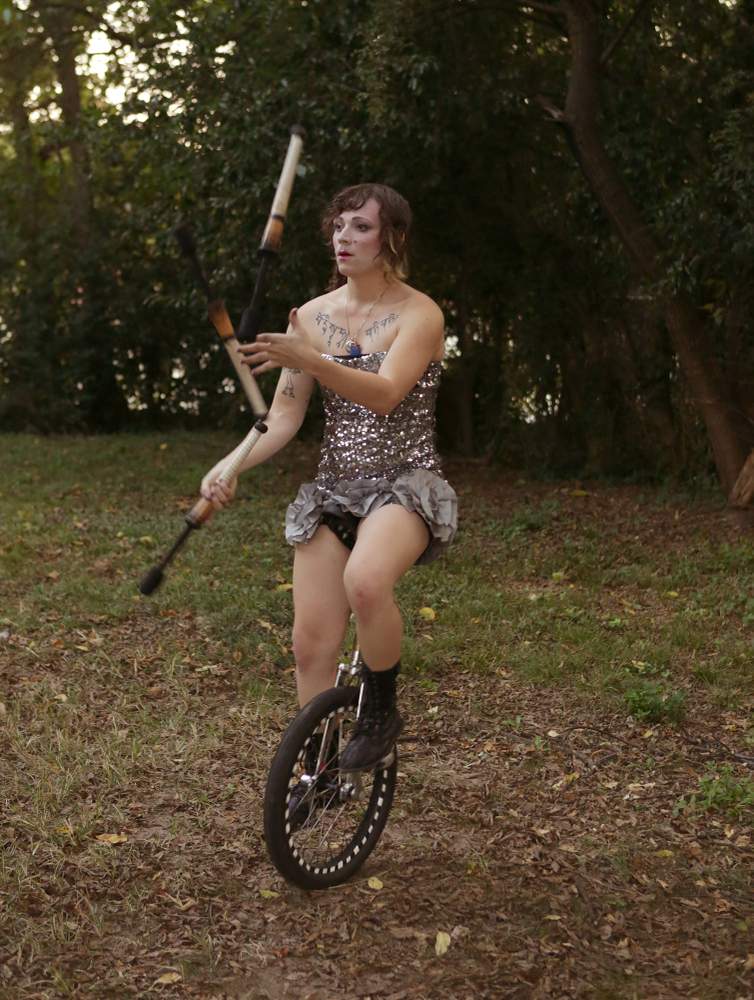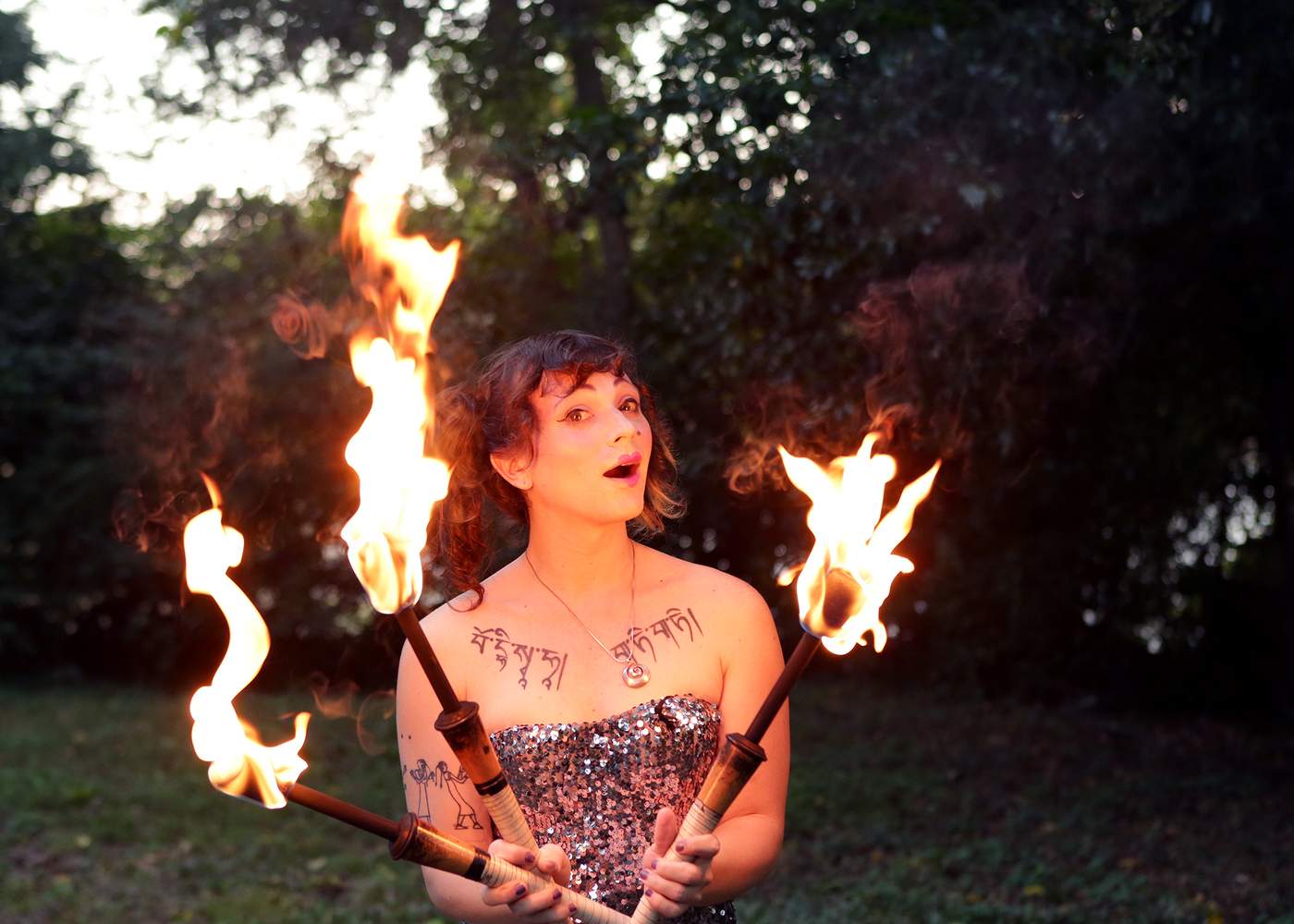In an Adair Park bungalow painted multiple shades of green, Lucy Eden sipped tea one cloudy morning in June, ate a bagel, and set out for her commute to work on a unicycle.
The catalytic converter had gone kaput on her minivan, relegating the professional circus performer to what could be the zaniest commute in town. Wearing a polka dot dress, her brown hair flowing in the breeze behind her, she pedaled around the neighborhood’s namesake park, past the entrance to the Beltline’s Westside Trail, and on for another sweaty mile to the West End MARTA station, where she would continue her journey to Sandy Springs.
You can ride a unicycle! an astonished little girl blurted as Lucy passed by.

Lucy Eden juggles while riding a unicycle. / Contributed by Akili-Casundria Ramsess/Eye of Ramsess Media
Commuting via unicycle — not just to work but to the post office and corner store for groceries — regularly triggers double takes and surprised commentary on the streets of southwest Atlanta.
Lucy, 33, was delighted by the girl’s observation. But other comments she finds disturbing.
You look good up there.
Oh, baby doll, if I was that bicycle seat, I’d be so happy!
Then there are the scary ones, like the teenager who called her “tranny” and the man who blatantly asked how she urinated.
In the back of Lucy’s mind as she rides is her friend, another Atlanta transwoman, who had her teeth knocked out in a brutal, transphobic assault. Lucy keeps a running tally of transwomen murdered this year — 31 across the country, by her estimation.
But to Lucy, the hazards of living her life as a woman are better than the alternative: crippling depression and a life built upon lies.
Each public errand she runs dressed like a girl is a means of bringing her true self to light and putting to rest the character — Luke Eden — she played for three decades.
ABOUT THE STORY
While working on an unrelated magazine assignment, I heard about Lucy Eden and her decision to jeopardize her career by becoming a transwoman. Her experience seemed to have the makings of a powerful story. I interviewed Lucy’s friends, her family members, her girlfriend and her colleagues in the performing arts community. And I spent time with Lucy at home, watched her rehearsals and went to Asheville to see her perform. I’ve always been intrigued by underdogs, rebels and people who take risks for their beliefs, and I think Lucy Eden is all three.
Josh Green
Writer
personaljourneys@ajc.com
ABOUT THE REPORTER AND PHOTOGRAPHER
Josh Green is an award-winning freelance journalist whose 2016 Atlanta magazine story on gentrification won Atlanta Press Club and Green Eyeshade awards. He is also editor of Curbed Atlanta, and the author of a short story collection called “Dirtyville Rhapsodies,” published in 2013.
Akili-Casundria Ramsess is an award-winning photographer who has worked more than 25 years working for a variety of news organizations, including as photo editor for The Atlanta Journal & Constitution, San Jose Mercury News, Los Angeles Times, Associated Press and director of photography for the Orlando Sentinel. She is also executive director of the National Press Photographers Association






Please confirm the information below before signing in.